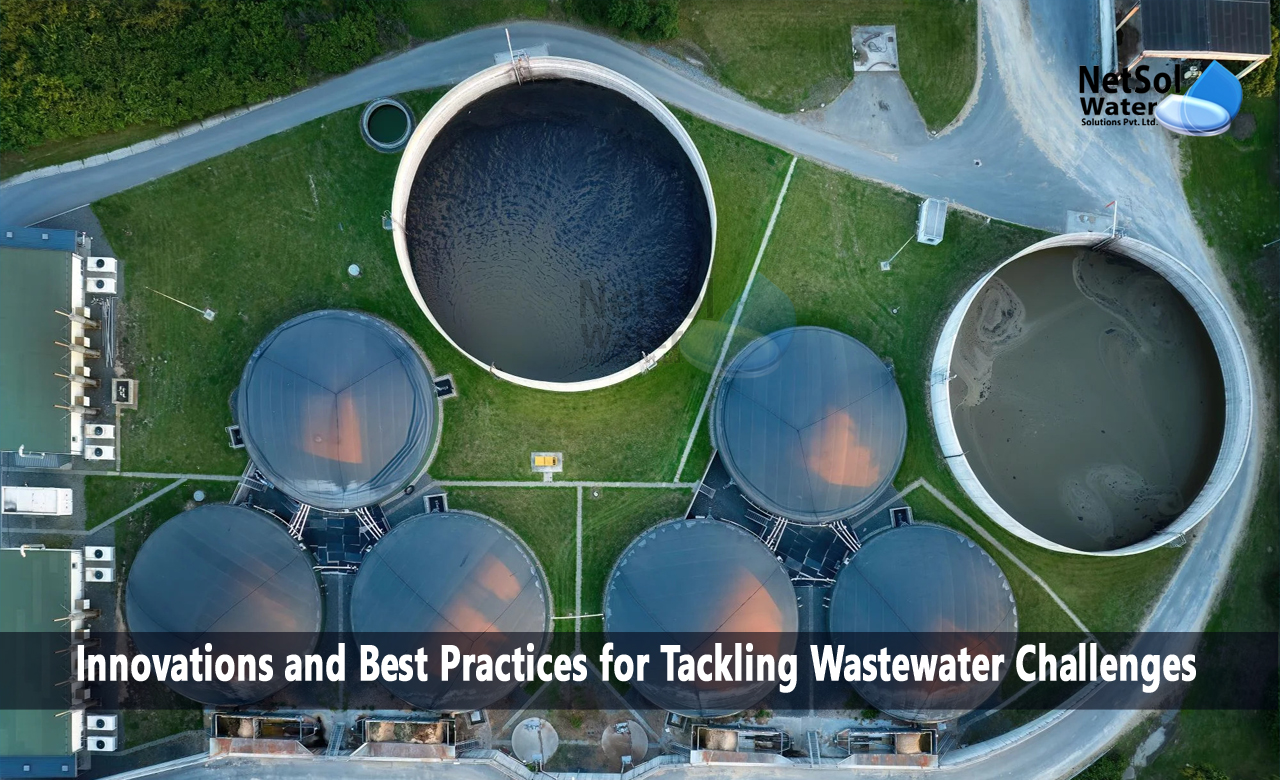Innovations and Best Practices for Tackling Wastewater Challenges
Wastewater management is a critical aspect of ensuring a sustainable and healthy environment. As populations grow, industries expand, and water resources become increasingly scarce, innovative approaches to wastewater treatment and management are crucial.
In this blog, we will explore some of the notable innovations and best practices that are helping to address wastewater challenges, protect water quality, and promote sustainable development.
-
Decentralized Wastewater Treatment Systems
Traditional centralized wastewater treatment plants require extensive infrastructure and are often not feasible in remote areas or rapidly growing communities. Decentralized wastewater treatment systems offer a scalable and cost-effective alternative. These systems treat wastewater closer to the source, reducing the need for extensive pipelines and allowing for localized treatment. Technologies such as constructed wetlands, membrane bioreactors, and packaged treatment units are employed in decentralized systems, providing efficient treatment while minimizing the environmental impact.
-
Membrane Technology for Water Reuse
Water scarcity is a pressing global issue, and the reuse of treated wastewater, also known as water reclamation, is gaining recognition as a viable solution. Membrane technology, including reverse osmosis and ultrafiltration, plays a pivotal role in water reclamation by removing contaminants and producing high-quality water. These membranes effectively filter out suspended solids, bacteria, viruses, and even trace pharmaceutical compounds, ensuring the water meets strict safety and quality standards. Membrane-based water reuse systems are being implemented in various sectors, including agriculture, industrial processes, and urban landscaping.
-
Resource Recovery and Energy Generation
Wastewater is not just a waste product; it contains valuable resources that can be recovered and reused. Advanced treatment processes, such as anaerobic digestion and thermal hydrolysis, can extract biogas from organic matter in wastewater. This biogas can be used as a renewable energy source for heating, electricity generation, or even as a transportation fuel. Additionally, nutrient recovery technologies capture phosphorus, nitrogen, and other valuable elements from wastewater, reducing the reliance on synthetic fertilizers and promoting a circular economy approach.
-
Smart Monitoring and Data Analytics
In the digital era, advancements in technology have revolutionized wastewater management. Smart monitoring systems, equipped with sensors and remote sensing technologies, allow for real-time monitoring of water quality parameters, flow rates, and system performance. This data can be analyzed using artificial intelligence and machine learning algorithms to identify patterns, optimize treatment processes, and detect anomalies. Smart monitoring and data analytics empower wastewater management authorities to make informed decisions, improve operational efficiency, and proactively address potential issues.
-
Public Awareness and Behavioral Change
While technological advancements are crucial, creating awareness and promoting behavioral change are equally important aspects of effective wastewater management. Public education campaigns, community engagement initiatives, and social media outreach play a significant role in raising awareness about the importance of wastewater treatment and the impact of individual actions. By encouraging responsible water usage, proper disposal of hazardous substances, and the use of eco-friendly products, communities can contribute to reducing the burden on wastewater treatment systems and protecting water resources.
Conclusion
Addressing wastewater challenges requires a multidimensional approach that combines technological innovation, sustainable practices, and community involvement. The innovations and best practices discussed in this blog demonstrate that we have the tools and knowledge to tackle these challenges effectively. By embracing decentralized treatment systems, membrane technology for water reuse, resource recovery initiatives, smart monitoring, and fostering public awareness, we can safeguard water quality, conserve water resources, and build a sustainable future.
However, it is essential to remember that continuous research, investment in infrastructure, and policy support are critical for the widespread implementation of these innovations. Collaborative efforts between governments, industry leaders, researchers, and communities are vital in advancing wastewater management practices and overcoming the challenges posed by increasing urbanization, industrialization,and population growth.
To ensure the success of wastewater management efforts, governments and policymakers need to prioritize the development and enforcement of regulations that promote sustainable practices and wastewater treatment standards. Financial incentives, grants, and subsidies can encourage industries and communities to adopt innovative technologies and invest in wastewater treatment infrastructure.
Furthermore, international collaboration and knowledge sharing play a significant role in tackling wastewater challenges on a global scale. Sharing best practices, lessons learned, and research findings can accelerate progress and facilitate the adoption of effective solutions in different regions and contexts. Platforms such as conferences, workshops, and partnerships between countries, organizations, and institutions foster collaboration and promote the exchange of ideas.
In conclusion, tackling wastewater challenges requires a combination of technological advancements, sustainable practices, policy support, and community engagement. By embracing decentralized treatment systems, implementing membrane technology for water reuse, promoting resource recovery, harnessing smart monitoring and data analytics, and fostering public awareness, we can address water pollution, conserve water resources, and protect the environment. It is through the collective efforts of individuals, communities, governments, and organizations that we can build a sustainable future where wastewater is effectively managed, water quality is preserved, and water scarcity is mitigated. Let us continue to innovate, collaborate, and take action to create a world where wastewater is treated as a valuable resource rather than a burden.
For any other support, inquiries, or product purchases, call on +91-9650608473 or email at enquiry@netsolwater.com



